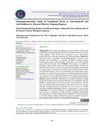 August 2023 in “International journal of basic and clinical pharmacology”
August 2023 in “International journal of basic and clinical pharmacology” Herbal hair serum promotes natural hair growth and maintains healthy hair.
[object Object]  11 citations,
January 2017 in “Evidence-based Complementary and Alternative Medicine”
11 citations,
January 2017 in “Evidence-based Complementary and Alternative Medicine” DA-5512 effectively improves hair growth and health, performing better than minoxidil.
 3 citations,
November 2019 in “Cosmetics”
3 citations,
November 2019 in “Cosmetics” Shampoo with Inula Helenium and Caesalpinia Sappan Bark extracts promotes hair growth and prevents hair loss in androgenetic alopecia patients.
 October 2024 in “Current Trends in Biotechnology and Pharmacy”
October 2024 in “Current Trends in Biotechnology and Pharmacy” The shampoo effectively promotes hair growth and is halal-compliant.
 January 2024 in “Journal of applied biological chemistry”
January 2024 in “Journal of applied biological chemistry” Glehnia littoralis and Andrographis paniculata extracts can significantly boost hair growth.
 72 citations,
January 2001 in “Drugs”
72 citations,
January 2001 in “Drugs” Minoxidil and finasteride treat hair loss; more research needed for other options.
 45 citations,
August 2019 in “Dermatologic Therapy”
45 citations,
August 2019 in “Dermatologic Therapy” Hair loss treatments work better with lifestyle changes.
 16 citations,
September 2018 in “Journal of Ethnopharmacology”
16 citations,
September 2018 in “Journal of Ethnopharmacology” Plant-based remedies may treat hair loss by reducing inflammation and improving insulin resistance.
 151 citations,
May 2014 in “American Journal of Clinical Dermatology”
151 citations,
May 2014 in “American Journal of Clinical Dermatology” Effective treatments for male pattern baldness include oral finasteride and topical minoxidil, while topical minoxidil is best for female pattern baldness.
3 citations,
September 2016 in “Clinical, cosmetic and investigational dermatology” Sphinganine can reduce hair loss and improve scalp health.
 January 2024 in “Journal of Evidence-Based Integrative Medicine”
January 2024 in “Journal of Evidence-Based Integrative Medicine” Teak leaf extract may effectively and safely promote hair growth in males with androgenic alopecia.
 April 2023 in “Jurnal Farmasi Indonesia”
April 2023 in “Jurnal Farmasi Indonesia” Candlenut oil and celery powder improved hair growth and could be a potential treatment for alopecia.
March 2023 in “Agroland: The Agricultural Sciences Journal/Agroland : The Agricultural Sciences Journal” Pontianak Aloe Vera is beneficial for skin and hair care in various cosmetic products.
 835 citations,
October 2008 in “Nature Genetics”
835 citations,
October 2008 in “Nature Genetics” Lgr5 is a marker for active, long-lasting stem cells in mouse hair follicles.
 1 citations,
January 2013 in “Journal of Investigative Dermatology”
1 citations,
January 2013 in “Journal of Investigative Dermatology” The document concludes that stem cells and their environments are crucial for skin and hair health and have potential for medical treatments.
 September 2022 in “Polish Hyperbaric Research”
September 2022 in “Polish Hyperbaric Research” Some treatments for hair loss, like finasteride, biotin, and minoxidil, can be effective, but their success varies by individual case.
 98 citations,
July 2014 in “Trends in Molecular Medicine”
98 citations,
July 2014 in “Trends in Molecular Medicine” Hair follicles are hormone-sensitive and involved in growth and other functions, with potential for new treatments, but more research is needed.
 67 citations,
June 2018 in “Engineering in Life Sciences”
67 citations,
June 2018 in “Engineering in Life Sciences” Plant cell culture is a promising method for creating sustainable and high-quality cosmetic ingredients.
 8 citations,
April 2020 in “Journal of Ethnopharmacology”
8 citations,
April 2020 in “Journal of Ethnopharmacology” Herbs might help with hair loss, but more research is needed to confirm their safety and effectiveness.
February 2024 in “Cosmetics” The conclusion is that new plant-based treatments for hair loss may work by targeting certain enzymes.
 1 citations,
January 2022 in “Stem cell biology and regenerative medicine”
1 citations,
January 2022 in “Stem cell biology and regenerative medicine” New methods to test hair growth treatments have been developed.
[object Object]  90 citations,
October 1996 in “Dermatologic Clinics”
90 citations,
October 1996 in “Dermatologic Clinics” Growth factors are crucial for hair development and could help treat hair diseases.
 121 citations,
May 2009 in “Journal of Ethnopharmacology”
121 citations,
May 2009 in “Journal of Ethnopharmacology” Eclipta alba extract may help hair grow similarly to Minoxidil.
 24 citations,
January 2015 in “Evidence-based Complementary and Alternative Medicine”
24 citations,
January 2015 in “Evidence-based Complementary and Alternative Medicine” Polygonum multiflorum can promote hair growth when taken orally or applied topically.
 4 citations,
August 2017 in “Cosmetics”
4 citations,
August 2017 in “Cosmetics” The extract reduced sebum production and promoted hair growth.
 8 citations,
September 2022 in “Biointerface Research in Applied Chemistry”
8 citations,
September 2022 in “Biointerface Research in Applied Chemistry” Quinoline alkaloids from Cinchona may help treat cancer, diabetes, fungal infections, and promote hair growth.
 October 2023 in “Jurnal Farmasi Galenika (Galenika Journal of Pharmacy)”
October 2023 in “Jurnal Farmasi Galenika (Galenika Journal of Pharmacy)” Traditional herbs in Amarasi District may help treat dandruff and hair loss.
 26 citations,
May 2014 in “BioEssays”
26 citations,
May 2014 in “BioEssays” Using neurohormones to control keratin can lead to new skin disease treatments.
1 citations,
February 2024 in “Diversity” African plants can treat hair issues and may help with diabetes.
Natural products may help treat hair loss by promoting hair growth with fewer side effects.

























